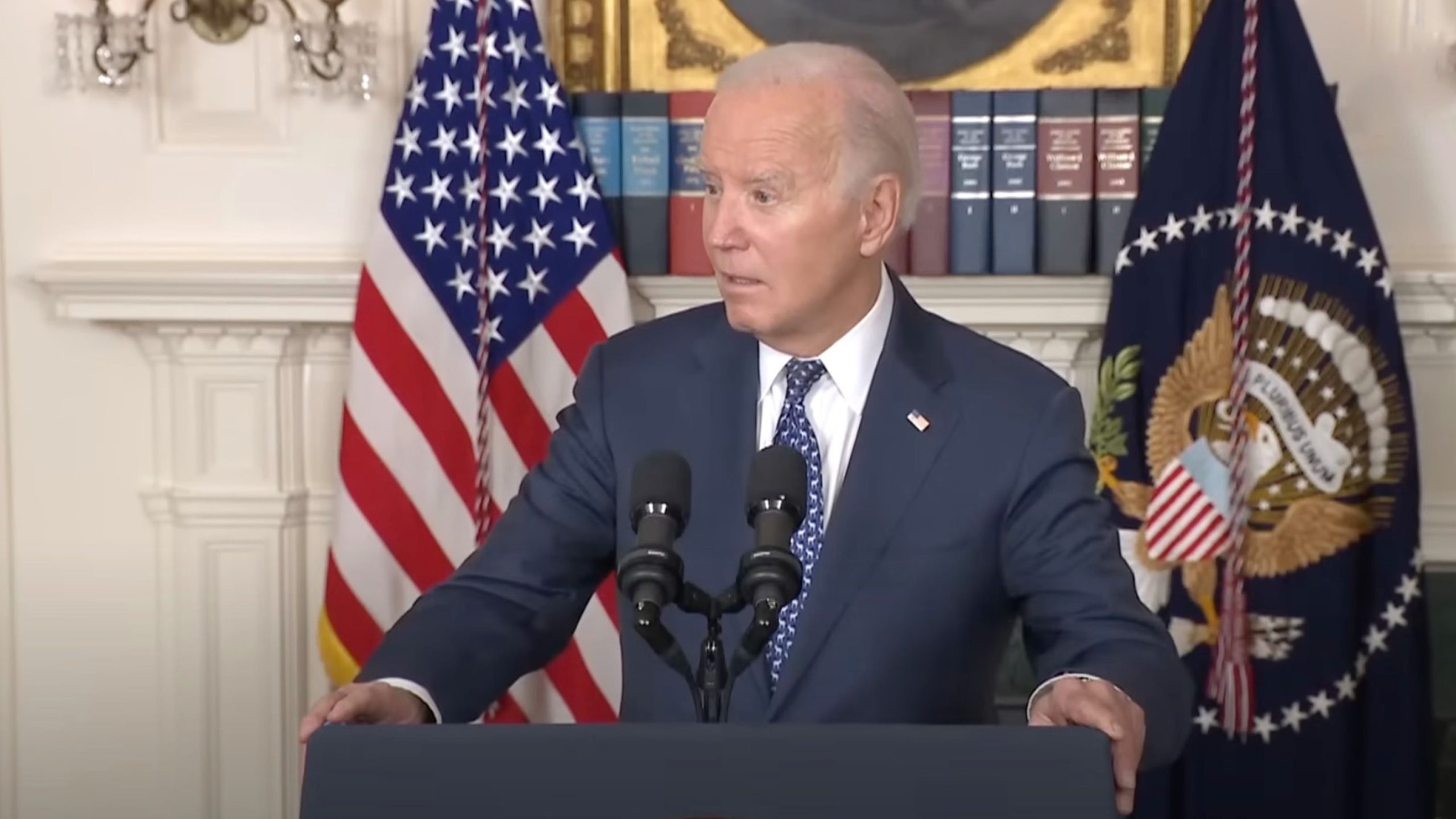The rise of AI and complaints about online “misinformation” is now being used as an excuse for the Justice Department to deny transparency to the American public.
The Justice Department is currently leveraging concerns about the potential for artificial intelligence to create deceptive deepfakes as an excuse to block the release of an audio recording featuring President Joe Biden and former special counsel Robert Hur.
Hur is a former US Attorney and a special counsel appointed by Attorney General Merrick Garland. He was tasked with investigating the handling of classified documents by President Joe Biden. This investigation was initiated after classified documents were discovered at Biden’s former office at the Penn Biden Center in Washington, D.C., as well as at his home in Wilmington, Delaware.
Hurr recommended that no charges be brought against President Biden as he reasoned that “at trial, Mr. Biden would likely present himself to a jury, as he did during our interview of him, as a sympathetic, well-meaning, elderly man with a poor memory.”
In Hur’s opinion, “it would be difficult to convince a jury that they should convict him—by then a former president well into his eighties—of a serious felony that requires a mental state of willfulness.”
It was these statements that intrigued the Public about what President Biden testified to while under investigation and what led Hur to believe the President didn’t have the “mental state” adequate for trial.
However, the audio recordings of President Biden’s statements have yet to be released, with the Justice Department wanting to avoid offering any transparency about Biden’s testimony.
And now, after running out of reasons as to why the recordings should not be made public, the Justice Department argues that they could be used to promote “misinformation” and deepfakes – growing arguments that are used to justify censorship.
We obtained a copy of the filing for you here.
“The passage of time and advancements in audio, artificial intelligence, and ‘deep fake’ technologies only amplify concerns about malicious manipulation of audio files,” the Justice Department stated. “If the audio recording is released here, it is easy to foresee that it could be improperly altered, and that the altered file could be passed off as an authentic recording and widely distributed.”
“A malicious actor could slow down the speed of the recording or insert words that President Biden did not say or delete words that he did say,” the filing argues. “That problem is exacerbated by the fact that there is now widely available technology that can be used to create entirely different audio ‘deepfakes’ based on a recording.”
This argument forms part of a broader legal stance outlined in a court filing late Friday, where the Department contends that the release could lead to the manipulation of the audio to misrepresent the president’s words.
Critics, however, view this stance as overcautious, pointing out the abundance of publicly available recordings of President Biden that could already be used for creating such deepfakes. They argue that the Justice Department’s fears are perhaps exaggerated given the existing availability of Biden’s voice in various formats across the media.
In the court documents, the Department emphasizes the risk of malicious actors altering the recording—either by inserting false statements or omitting actual ones—to produce a fraudulent representation of the conversation.
Bradley Weinsheimer, an associate deputy attorney general, has noted in his affidavit that such alterations could be more convincingly passed as the original if the actual audio were released. Conversely, keeping the audio under wraps would purportedly allow the Department and others to more effectively challenge any falsified reproductions.
This controversy unfolds against a backdrop of intense legal demands by House Republicans, media groups, and conservative organizations, all pushing for the audio’s disclosure under the Freedom of Information Act.
The administration, however, has only released a transcript of the interview, claiming it mirrors the audio recording with negligible exceptions such as filler words or repetitions.
House Republicans insist that the nuances of Biden’s spoken words could offer insights beyond the written transcript, potentially critical to their broader impeachment investigation.













